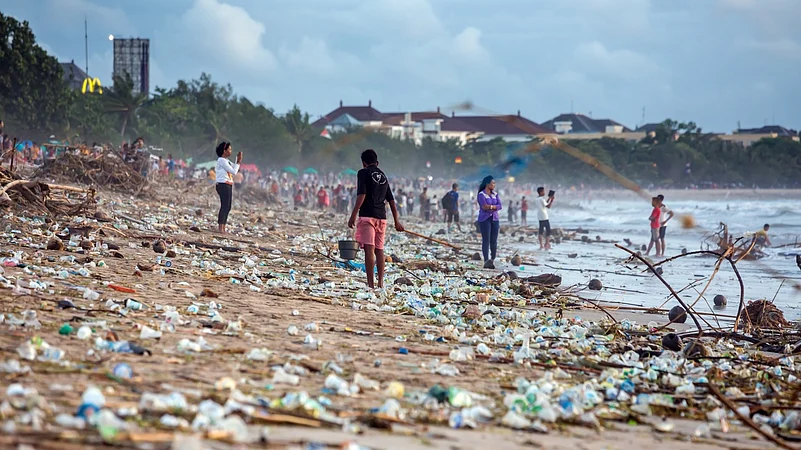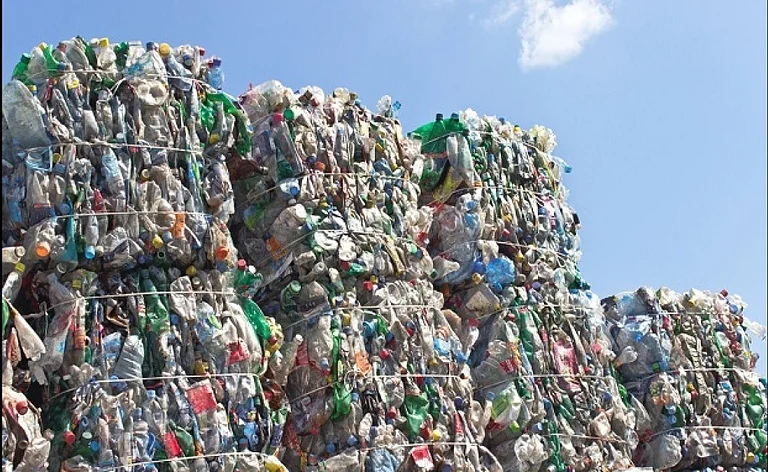
Talks in Geneva aim to finalise a global treaty addressing plastic pollution across its full life cycle, from production to waste.
Disagreements persist over capping plastic production and eliminating toxic chemicals, stalling progress since the last round in Busan, South Korea.
Scientists warn plastic poses "grave" threats to health and ecosystems, with global plastic output projected to reach 736 million tons by 2040.
More than 190 countries gathered in Geneva, Switzerland, on August 5 to reach agreement over the next fortnight on the first-ever Global Plastics Treaty for drafting the legally binding framework to end plastic pollution, including in the marine environment. If successful, this will be the second installment of the fifth meeting of the Intergovernmental Negotiating Committee (INC-5) of the United Nations.
“We are facing a global crisis,” Ecuadoran diplomat Luis Vayas Valdivieso said at the start of 10 days of negotiations, as reported by AFP.
“Plastic pollution is damaging ecosystems, polluting our oceans and rivers, threatening biodiversity, harming human health, and unfairly impacting the most vulnerable,” he said.
“The urgency is real, the evidence is clear, and the responsibility is on us,” he added.
During the discussions, countries will push to address plastic pollution through its life cycle, right from production which relies heavily on polluting oil and gas to the challenges of plastic waste disposal and recycling.
According to reports, negotiators plan to pick up from the previous session held in Busan, South Korea in December 2024, where talks had halted due to unresolved issues. These revolved around the draft treaty’s provisions on putting a cap on production of polymers, elimination of harmful chemicals from plastic production, and phasing out of harmful plastic products, according to AFP.
The Center for International Environmental Law, a US-based non-profit, stated that the current draft text, issued during Busan, stands at 22 pages with more than 370 brackets. The brackets indicate areas where there is no agreement between countries.
It was in 2022, in Nairobi, that a resolution was adopted at the United Nations Environment Assembly to develop global rules to end plastic pollution, and to do so by the end of 2024. If successfully adopted, the treaty would be the most significant one on environmental issues since the 2015 Paris climate agreement.
Plastic Costs Keep Rising
According to a study published in the journal The Lancet on August 3, there is a “grave, growing” danger from the rising tide of plastic and it puts “under-recognised danger to human and planetary health”. It also underscored that plastics are responsible for health-related economic losses exceeding $1.5 trillion annually.
Despite mounting evidence of the financial and physical costs that the existence of plastic does, the global plastic production continues to rise.
A 2024 report by the Organisation for Economic Co-operation and Development (OECD) revealed that plastic production doubled between 2000 and 2019, from 234 to 460 million tons. Without more ambitious policies, the amount of plastics produced around the world is set to reach 736 million tons by 2040.





























